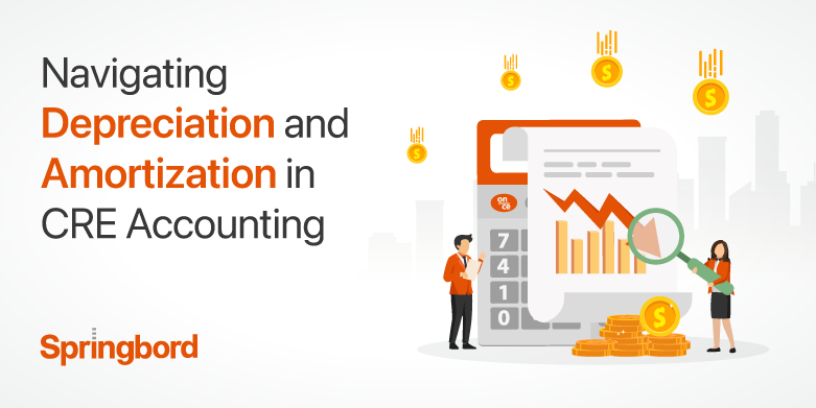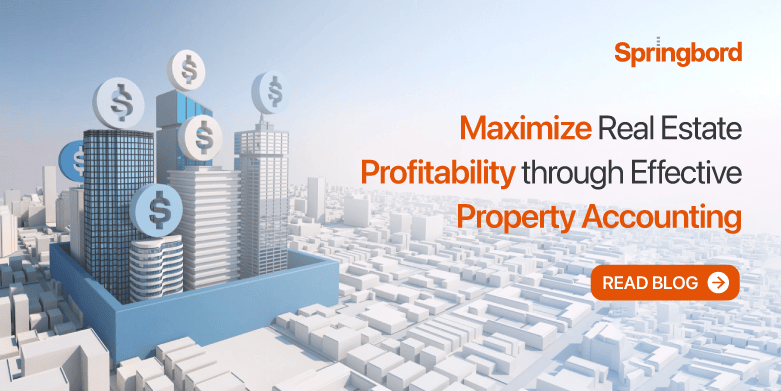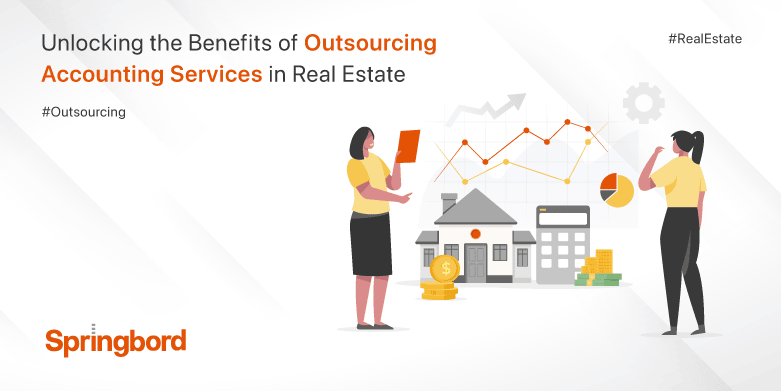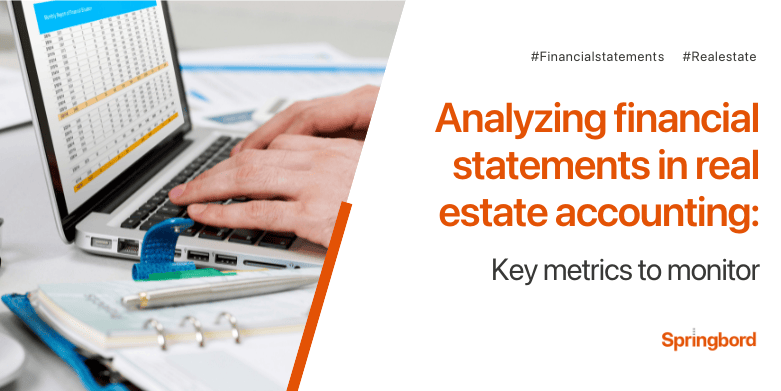 Read time 5 min
Read time 5 minImportance of Depreciation and Amortization in CRE Accounting
In the realm of commercial real estate (CRE) accounting, depreciation, and amortization stand as pivotal concepts, especially considering the increasing complexity and sophistication required in CRE investments. These accounting methods allocate the cost of an asset over its estimated useful life, reflecting a more accurate picture of an asset’s financial contribution and value over time.
Accurately recording depreciation and amortization expenses is crucial as it not only represents the true value of assets on a company’s balance sheet but also provides key insights into a company’s financial health and profitability.
Given the evolving landscape of CRE investments, there is a growing need for sophisticated accounting strategies. As the complexity of these investments escalates, so does the importance of accurately tracking and managing the financial implications of asset depreciation and amortization.
Understanding Depreciation in CRE Accounting
What is Depreciation in CRE?
In CRE accounting, depreciation is a non-cash expense that reflects the decrease in the value of a tangible asset over time. It’s crucial in the context of CRE as it allows investors to understand the diminishing value of their physical assets, such as buildings and equipment, due to factors like wear and tear, obsolescence, or natural resource depletion.
This concept is vital as it affects both the financial statements and the tax obligations of CRE investments.
Types of Depreciation Methods Commonly Used in CRE
- Straight-line Method: This method involves evenly spreading the cost of the asset over its expected useful life, resulting in equal depreciation expenses each accounting period. It’s a straightforward approach that provides consistency across financial periods.
- Accelerated Depreciation Method: This includes methods like double declining balance and sum-of-the-years’-digits (SYD). These methods allocate larger depreciation expenses in the earlier years of the asset’s life, reflecting the higher usage or faster value reduction during these initial years.
- Sum-of-the-Years’ Digits Method: A form of accelerated depreciation where the depreciation expense for each year is a fraction of the asset’s depreciable base, determined by the sum of the digits of the asset’s useful life. It results in higher depreciation charges in the early years, decreasing over time.
- Units-of-Production Method: This method bases the depreciation expense on the asset’s usage or production level, making it particularly suitable for machinery or equipment that is central to the production process.
Impact of Depreciation Method Choice
The choice of depreciation method can significantly impact financial statements and tax obligations. For instance, using an accelerated depreciation method can lead to higher expenses in the initial years, reducing taxable income more significantly during these periods.
This strategy might be advantageous for CRE investors seeking to maximize tax benefits early in their investment. However, this also means lower depreciation expenses and potentially higher taxable income in later years
Exploring Amortization in CRE Accounting
Definition and Application
Amortization in CRE accounting primarily involves spreading out the cost of an intangible asset over its useful life. This is essential for assets like patents or software licenses, which provide value over a specific period. For instance, a software license purchased for $50,000 with a five-year useful life would be amortized at $10,000 per year.
In the context of mortgage loans in CRE, amortization refers to the process of paying down the debt over time through regular installment payments that cover both interest and principal.
An amortization schedule for a loan details the loan balance, interest and principal components of each payment, and the total payment amount. This schedule is crucial in planning and managing CRE investments, as it outlines the payment timeline and the interest-principal breakdown over the loan period.
Different Amortization Schedules
The various amortization methods include the straight-line method, where the cost is allocated evenly across the asset’s life, and the declining balance method, which involves higher amortization rates in the earlier years.
There’s also the double declining balance method, which accelerates the depreciation rate, effectively expensing the asset more quickly.
Impact on Cash Flow and Tax Reporting
Amortization influences cash flow by determining the annual expense related to intangible assets. Though it’s a non-cash expense, it affects the profit and loss statement and, subsequently, the tax liabilities of a business.
Properly accounting for amortization can lead to tax savings, as it reduces taxable income over the asset’s life.
Maximizing Tax Benefits through Depreciation and Amortization
Strategies for Maximizing Tax Benefits
To maximize tax benefits through depreciation and amortization, it’s crucial to select the appropriate method that aligns with your asset’s usage and revenue generation patterns. For tangible assets, accelerated depreciation methods like the double declining balance can be beneficial for reducing taxable income in the early years.
For intangible assets, using the straight-line method often provides a consistent and predictable expense allocation, which can aid in steady tax planning.
Recent Tax Law Changes Affecting CRE Accounting
Staying abreast of changes in tax laws is vital. For instance, changes in laws might alter the depreciation periods for certain assets, introduce new categories of assets eligible for accelerated depreciation, or modify the rules governing the amortization of intangible assets.
These changes can significantly impact a CRE investment’s financial and tax reporting.
The Role of Accounting Services in CRE
Navigating the intricacies of depreciation and amortization in commercial real estate accounting services is a challenging task, one that requires specialized knowledge and expertise. This is where professional accounting services, like those offered by Springbord, become invaluable. At Springbord, we understand the complexities of CRE investments and provide tailored accounting solutions that address the unique needs of each investment.
Our services encompass a thorough understanding of various depreciation methods and their impact on financial statements and tax obligations. We help our clients select the most appropriate depreciation method for their assets, balancing between maximizing tax benefits and aligning with their investment strategy.
In terms of amortization, our expertise extends to accurately calculating and applying amortization schedules for both intangible assets and mortgage loans in CRE. This attention to detail ensures that our client’s financial statements accurately reflect their asset values and liabilities.
Conclusion: The Strategic Advantage of Expert CRE Accounting
Understanding and strategically managing depreciation and amortization is crucial in CRE accounting. These elements are not mere accounting formalities; they hold significant implications for financial reporting, tax planning, and overall investment performance. It’s essential to have a deep understanding of these processes to make informed decisions that align with business objectives and regulatory requirements.
At Springbord, we offer more than just accounting services; we provide a strategic advantage to CRE investors and business owners. Our expertise in CRE accounting enables our clients to navigate the complexities of depreciation and amortization, ensuring compliance and optimizing their investments’ financial performance.
With Springbord, investors and business owners can confidently make decisions, knowing that their accounting needs are managed by experts who understand the nuances of CRE investments. We are committed to delivering customized, comprehensive accounting solutions that contribute to the success and growth of our clients’ real estate ventures.
Contact us today to learn how Springbord can help optimize your commercial real estate accounting and enhance your investment returns.







